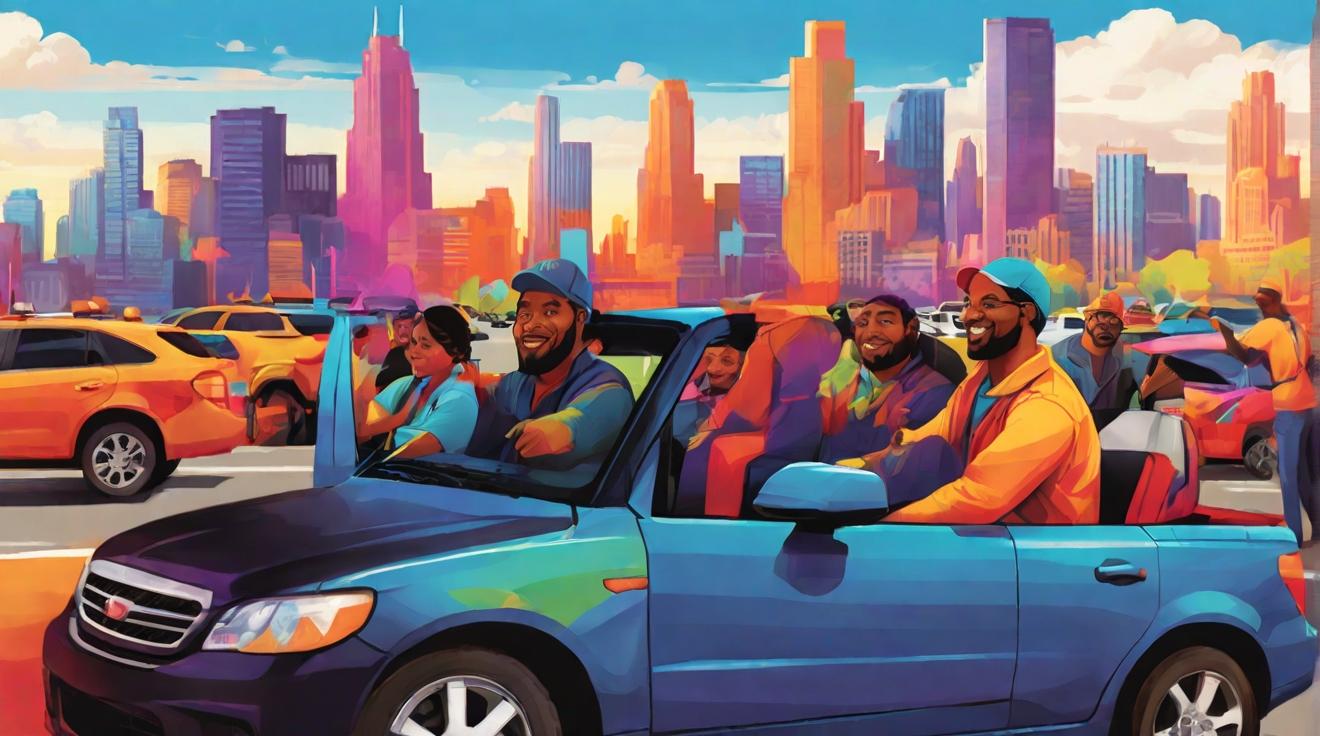Rideshare Revolution: New Apps Navigate Minneapolis Market Amid Uber & Lyft Uncertainty
In the wake of the Minneapolis City Council's groundbreaking decision to impose the state's inaugural minimum pay ordinance for rideshare drivers, the rideshare giants Uber and Lyft have voiced their possibility of exiting the Minneapolis market—potentially leaving a gap that new players are eager to fill. Amid this brewing storm, two avant-garde rideshare companies, Drivers Cooperative and Hich, are poised to challenge the status quo and rejuvenate the local rideshare landscape.
Despite not having secured a transportation network company (TNC) license to operate in Minneapolis yet, these companies have initiated a recruitment drive, ensnaring interest from several hundred drivers in an event organized by the Minnesota Uber/Lyft Drivers Association (MULDA). This initiative signals a potent desire among drivers for alternative platforms that promise better compensation and a fair sharing of the rideshare pie.
The Minneapolis ordinance, passed on March 14 after overriding a veto by Mayor Jacob Frey, mandates a minimum wage for drivers set at $1.40 per mile and $0.51 per minute or $5 – whichever is greater. This legislated wage seeks to ensure a sustainable income for drivers, who operate as independent contractors.
Uber and Lyft's contention that the mandated rates are exorbitant has led them to consider withdrawing their services by May 1. This scenario creates a strategic opening for emerging rideshare entities that commit to offering drivers a heftier share of earnings.
Erik Forman, co-founder of the Drivers Cooperative (Co-Op Ride), underscored their ambition to cement a foothold in the Minneapolis market by the looming deadline. Renowned for its fleet in New York, Co-Op Ride envisions a model where profits are funneled back to drivers or reinvested into the company, in stark contrast to conventional rideshare apps.
Concurrently, Hich, a company with a strong presence in Africa and Canada, announced its intent to venture into Minneapolis. Hich's unique business model, which involves drivers paying a flat fee for app usage rather than a percentage of trip fares, illustrates the diverse strategies new rideshare companies are employing to attract drivers.
Before their aspirations can morph into reality, both companies must navigate the city's bureaucratic labyrinth to obtain a TNC license. Compounded by an insurance hiccup as stated by MULDA President Eid Ali, the path to operational status in Minneapolis is fraught with hurdles—including the hefty $37,145 (Minneapolis) and $41,115 (St. Paul) license fees, alongside a minimum $1 million liability insurance prerequisite.
As Minneapolis stands at the cusp of a potential rideshare renaissance, the evolving scenario underscores a pivotal moment for the industry. It not only reflects the shifting dynamics of the gig economy but also highlights the crucial role of municipal regulations in shaping the future of urban mobility. Whether these new entrants will indeed fill the void possibly left by Uber and Lyft remains a question only time will unravel.
Analyst comment
Positive news: The entry of new rideshare companies in the Minneapolis market amid uncertainty from Uber and Lyft offers drivers alternative platforms that promise better compensation.
As an analyst, I predict that with their unique business models and a strong desire from drivers for better pay, both Drivers Cooperative and Hich have the potential to challenge the status quo and rejuvenate the local rideshare landscape. However, they still need to navigate city bureaucracy and obtain TNC licenses, which may pose challenges. Time will tell if these new entrants can fill the potential void left by Uber and Lyft.













